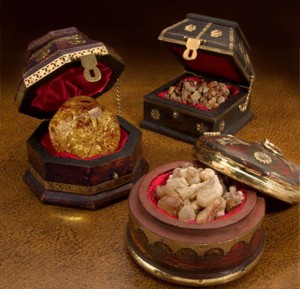“Christmas. It’s all about the gifts, now, so it seems.”
This was the thought that permeated my mind as I wrapped what was purchased and perused the list of what remained to be.
The commercialization of Christmas is something that we all grouse about during the holidays, at some point. It seems to start even before Halloween, now, leaving Thanksgiving as a kind of stuff-yourself preamble to what is really the main attraction. Don’t get me wrong. I LOVE Christmas. But the commercial shopping push always rubs me the wrong way.
I enjoy buying something for my loved ones that I believe they’ll love. A gift that maybe they’ve eluded to during the year, or will touch on something that has been shared between just the two of us. Something special and unexpected. While I love fulfilling a special request from a list, I like coming up with something on my own even more. That way, it’s a gift of value because it’s a gift from the heart.
Gifts at Christmas obviously aren’t new. To me, the gift of Jesus, Himself, has always been the reason we give gifts; after all, He was the gift that eclipsed all gifts offered before He came, and until the end of time. But lately, I’ve been reading about the Three Wise Men. There’s so much mystery that surrounds these three exotic figures who are included in our nativity scenes at the stable, but who really searched for two years to find the baby King about whom they’d heard. And they didn’t arrive empty-handed.
God doesn’t waste words in the Bible. There isn’t a single word there by accident, or that is included as ‘filler.’ They all, ALL mean something. So why did these three men, said to be kings, themselves, give this little child gifts of gold, frankincense and myrrh?
 Scholars seem to agree, for the most part, that gold was given because it was the purest, most valuable, commodity of the day, and was typically reserved for royalty. Frankincense was an incense that was only used in the temple, and only by priests, as a sweet offering to God. It was also used as a very expensive perfume. Myrrh, by contrast, was not sweet, but bitter, and used for embalming the dead. In short, they symbolized His kingship, His priesthood or divinity, and His death and burial. Not your typical baby gifts, but I wonder if those particular gifts weren’t given as a message for us, too. Could they actually apply to you and me?
Scholars seem to agree, for the most part, that gold was given because it was the purest, most valuable, commodity of the day, and was typically reserved for royalty. Frankincense was an incense that was only used in the temple, and only by priests, as a sweet offering to God. It was also used as a very expensive perfume. Myrrh, by contrast, was not sweet, but bitter, and used for embalming the dead. In short, they symbolized His kingship, His priesthood or divinity, and His death and burial. Not your typical baby gifts, but I wonder if those particular gifts weren’t given as a message for us, too. Could they actually apply to you and me?
Romans 12:1 tells us that we are to offer our bodies as a living sacrifice to God…a gift. But if we consider the gifts that were presented to Christ by the three kings, a lot of us might stop short. “Gold, pure and valuable?” we ask. “There’s not much about me that falls into that category.” We don’t feel worthy, so we don’t offer anything.
However, what if we started with the myrrh? I don’t know about you, but I’ve got enough junk in my life that makes relating to bitter myrrh completely doable. What if we offered Him all of our myrrh and let Him call it what it is: sin and death. What if we let Him clean it up, so to speak, then bury it for good?
Well, I bet once the bitterness was gone, it would be a lot easier to see the frankincense…the good in our lives, the giving and the loving and the things we got right. Maybe then we could offer Him our sweet-smelling frankincense, and it would be a temple-worthy, pleasing fragrance to the Father. But, then what?
When we’ve given Him our bitter myrrh and our fragrant frankincense, He’s able to take that offering and bring us to a place we never thought possible: co-heirs with Christ, recipients of His glorious inheritance…royalty. And that right there is PURE GOLD.
In spite of the shopping push, and endless lists, we need to remember the Magi. Certainly, in giving of ourselves to others, we’ll receive the gratification of pleasing the ones we love. But in giving our own gifts of myrrh, frankincense and gold to the Christ child, we’ll receive riches beyond comprehension and finally understand the season of Christmas giving. He was given, so we could give ourselves.

Oh, thank you, Melinda, this is so beautiful and so meaningful and so insightful and so needed for people like me this time of the year!! I Love You!!!
Very sweet and so encouraging! We took Jacie to a Christmas party yesterday, and they had this exact set of gold, frankincense and myrrh. It was so beautiful!
Very thoughtful post. Our pastor made the point recently that nowhere in the Bible do we find the giving of gifts to EACH OTHER as part of celebrating the birth of Jesus. I had never thought about that. The gifts were given to Jesus, not to Mary or Joseph or anyone else. Romans 12: 1 fits perfectly with this line of thinking.